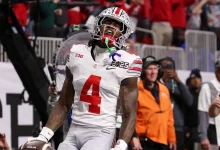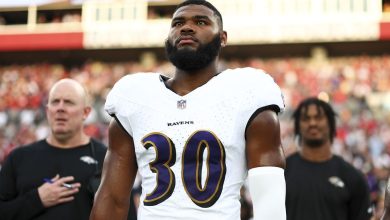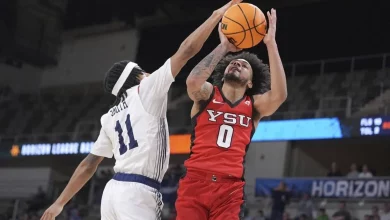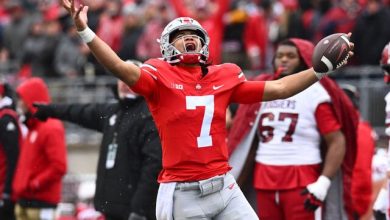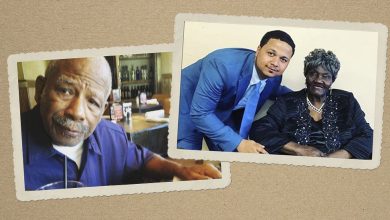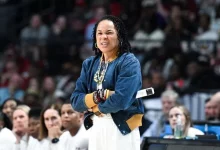Angel Reese spoke out about the WNBA investigation into hateful comments allegedly directed at her during the Sky’s season-opener, addressing the emotional toll.
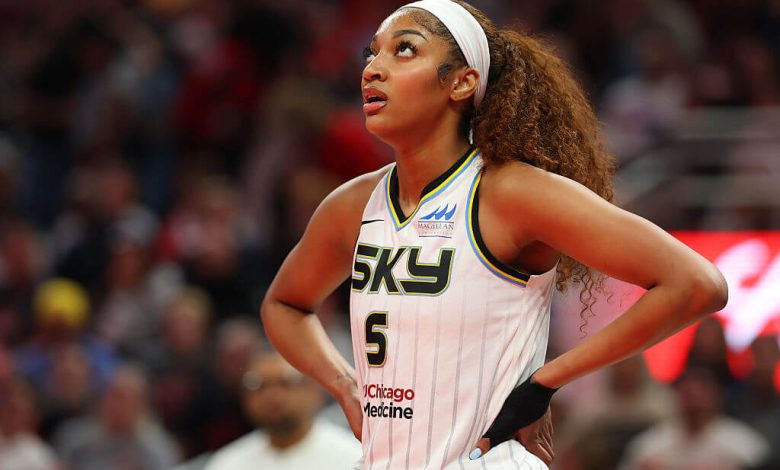
In recent years, Angel Reese has become one of the most dominant and recognizable names in women’s basketball, a force both on and off the court. As a star player for LSU, Reese’s talent, intensity, and confidence were undeniable, earning her a spot in the WNBA and marking her as a future star in professional basketball. However, Reese’s path to stardom has been marred by the ugly realities of racism and harassment that many Black athletes face, both in and outside of sports. In a heartfelt and powerful statement, Reese opened up about the WNBA investigation into hateful comments that were allegedly directed at her during the Chicago Sky’s season-opener, giving voice to the emotional toll such incidents take on athletes.
This investigation and Reese’s decision to speak out shine a light on a broader issue that athletes, particularly women of color, have been forced to contend with for years. While athletes have always been seen as public figures, the rise of social media and the growing intensity of fan culture have exacerbated the harassment, often manifesting in personal attacks fueled by racism and misogyny. Reese’s experience highlights how these issues are not just incidents of “trash talk” or competition, but manifestations of something far more dangerous—hate, discrimination, and an ongoing culture that still struggles with equality.
The Incident: What Happened During the Season-Opener?
Angel Reese’s debut in the WNBA was eagerly anticipated. After leading LSU to a national championship and being named the Most Outstanding Player of the tournament, her move to the professional league was poised to make waves. However, Reese’s highly anticipated season-opener with the Chicago Sky was overshadowed by a deeply troubling incident.
During the game, Reese was allegedly targeted with insensitive, hateful remarks from an opponent, reportedly aimed at her race and personal identity. While specific details of the comments remain private due to the investigation, it is clear that the abuse was not just verbal but emotionally damaging. These types of remarks often cut deep, as they not only dehumanize the player but also serve to reinforce the long-standing patterns of racial animus that exist in many arenas of public life, including sports.
The comments, reportedly made in the heat of competition, were allegedly fueled by racial stereotypes and misogynistic attitudes. In the midst of a competitive game, when emotions run high and tensions often boil over, it is not uncommon for verbal altercations to take place. However, what set this incident apart was the nature of the comments and their racial undertones, which added an extra layer of hostility and negativity.
The WNBA swiftly launched an investigation into the matter, taking the allegations seriously and looking into the specifics of what transpired. While the outcome of that investigation remains pending, the story has already sparked an important conversation about the challenges that athletes, particularly women of color, face in the world of professional sports.
Reese’s Response: Courage in Speaking Out
Angel Reese did not remain silent in the face of these hateful remarks. Instead, she chose to speak out publicly, sharing her emotional response to the incident. Her decision to address the situation head-on was both courageous and important, as it brought attention to the toxic culture that persists in sports and the impact it has on athletes, particularly women of color.
In her statement, Reese expressed how difficult it was to process the hateful comments and the emotional toll they took on her. She described how, as an athlete, she was used to facing criticism and trash talk, but the racial elements of the remarks made this incident different. It was not just about competition or trying to get into her head—it was an attempt to degrade her as a person based on her race, something no athlete should ever have to experience.
Reese also took the opportunity to remind the public that athletes, while living their lives under the scrutiny of the media and fans, are still human beings. They are individuals with emotions, struggles, and lives outside of the game. The fact that Reese felt compelled to speak out shows how damaging these comments were and how much work still needs to be done to eliminate racism and discrimination in sports.
Her openness in discussing the emotional toll of the incident served as an important reminder that harassment and hate are not just part of the “game.” They are harmful and have long-lasting effects on those who experience them. Her decision to not let the incident slide into the background of sports culture allowed her to use her platform for good, turning a moment of personal pain into an opportunity for societal reflection.
The WNBA’s Response: A Step Toward Accountability
The WNBA has made strides in addressing issues of racism and discrimination, creating programs that foster inclusion and support for women athletes from all backgrounds. Upon learning about the incident, the league launched an immediate investigation to get to the bottom of what happened during the game and hold accountable any individuals who may have contributed to the harmful environment.
This proactive approach from the WNBA is an important signal to other leagues that racism and hate speech will not be tolerated, and athletes who experience these kinds of attacks will be supported. Investigations into such incidents are critical in maintaining the integrity of the sport and protecting the well-being of players. For Reese, knowing that the WNBA was taking the situation seriously likely provided some solace during what was undoubtedly a painful time.
The league’s response, however, also underscores a larger issue within professional sports: despite progress in some areas, the culture around harassment and racism remains pervasive. The fact that incidents like this continue to occur, even at the highest levels of competition, highlights how much work is still needed to eradicate this behavior from sports culture altogether.
In addition to investigating the incident, the WNBA has reiterated its commitment to providing resources for mental health and support systems for athletes who experience harassment, whether on the court or off. For many athletes, these resources can make a significant difference in how they process and cope with such traumatic experiences.
The Broader Issue: Racism and Harassment in Sports
Reese’s experience is unfortunately not an isolated incident. Across various sports, women of color—especially those in the spotlight—have faced a unique set of challenges that go beyond athletic competition. From racial slurs to body-shaming and other forms of online harassment, Black women in sports are often subjected to a level of vitriol and hostility that their white counterparts are not.
For instance, in the world of tennis, Serena Williams has been the subject of repeated attacks on her body and appearance. In basketball, stars like Diana Taurasi and Sue Bird have faced misogynistic comments, despite their legendary careers. The difference in Reese’s case is that her experience happened in the WNBA, where women of color like her are often the faces of the league, and yet the incidents of abuse continue to plague the sport.
This speaks to a much larger problem: the racial and gender inequalities in sports. While many leagues, teams, and organizations have taken steps to combat these issues, the underlying biases and prejudices that fuel these harmful behaviors remain deeply ingrained in sports culture. This is why Reese’s voice and the WNBA’s response are so important—by addressing these issues head-on, they help to create a dialogue and a path forward.
The emotional toll of racism and harassment is not something that can be easily dismissed. For athletes like Reese, whose very identity is often the subject of hateful comments, the psychological effects of these incidents can be profound. The constant need to prove oneself, to fight back against negative stereotypes, and to navigate a world that doesn’t always seem welcoming is draining.
The Way Forward: Creating Safe Spaces for All Athletes
As the WNBA continues its investigation into the incident, it is clear that Reese’s experience must be a catalyst for change in the sports world. This includes further strengthening policies against racism and harassment, offering more robust mental health resources for athletes, and fostering a culture of accountability and inclusion in all levels of sport.
Athletes, especially women of color, should feel safe to compete at the highest level without the added burden of being dehumanized or targeted based on their race. Creating a safer environment for these athletes will require collective action from leagues, organizations, fans, and the media to call out and eliminate harmful behaviors.
Empowering Change Through Storytelling
Angel Reese’s decision to speak out about the hateful comments she endured in the season-opener is both brave and important. Through her openness, she has given a voice to those who have suffered in silence and sparked a much-needed conversation about the pervasive nature of racism and harassment in sports.
As Reese continues her journey in the WNBA, her story will undoubtedly inspire others to stand up against injustice. Her experience serves as a reminder that athletes are more than just players—they are human beings who deserve respect, dignity, and fair treatment.
For the sports world to evolve, it will take a collective effort. But with athletes like Angel Reese leading the way, the hope is that one day, no athlete will ever have to face the kind of hate that she did—on the court or off.
Let me know if you’d like to expand on any sections or add further details!


